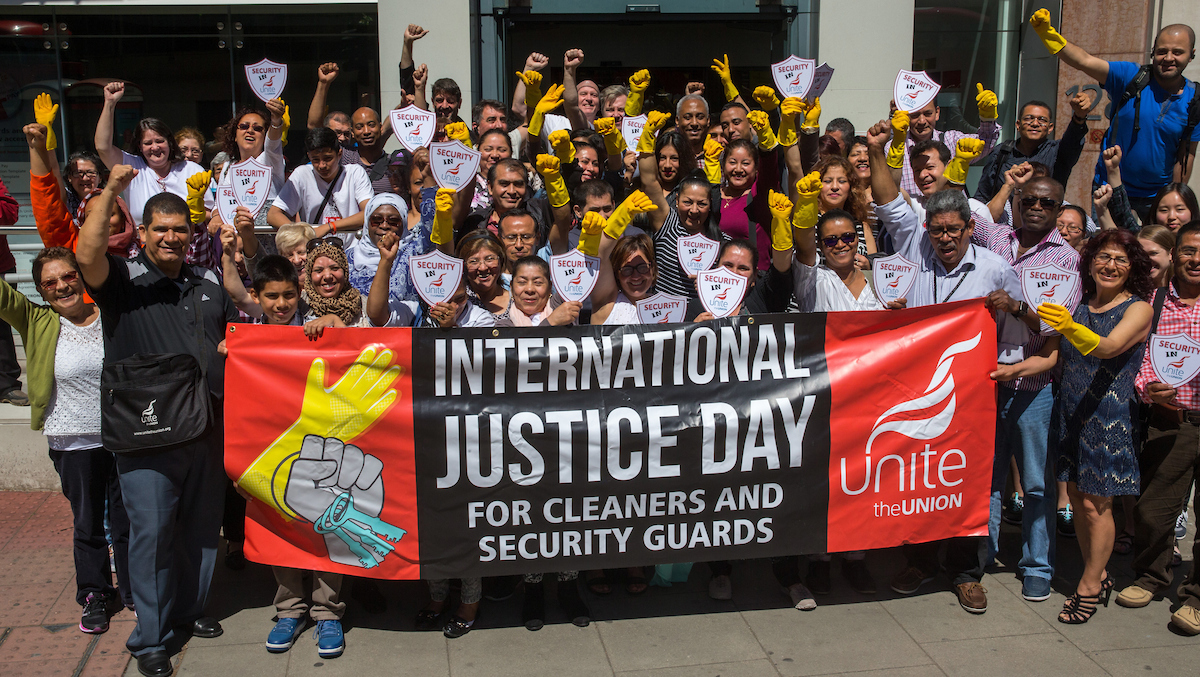Saying it with flowers
Domestic workers are one step closer to getting the justice they deserve, as the House of Lords passed an amendment to the Modern Slavery Bill last week which would free the migrant workers from being tied to one employer as a condition of their visa.
Now, the bill must go through the House of Commons for its third and final reading, which will likely happen next week.
Campaigners from Justice 4 Domestic Workers, a self-organised branch of Unite, gathered outside the House of Lords this morning (March 4), handing out flowers to peers to thank them for passing the amendment – a key campaign goal that’s been years in the making.
The Tied Domestic Worker Visa was introduced by the coalition government in 2012, and Unite argues that it’s enabled further abuse of a group of people already marginalised and exploited.
Statistics from campaign group Kalayaan show that the changes to the visa system three years ago have indeed trapped more migrant workers into slave-like conditions.
Migrant domestic workers who were tied to their employers were twice as likely to report having been physically abused as those who were not tied, Kalayaan found.
The group also found that 53 per cent worked more than 16 hours a day compared to 32 per cent of those who had the right to change employer, while three quarters of those tied reported never being allowed out of the house where they lived and worked unsupervised (71 per cent), compared to under half on the original visa (43 per cent).
Unite assistant general secretary Diana Holland hailed the House of Lords passing the amendment.
“The House of Lords did the right thing last month by restoring the right of domestic workers to change employers and now we are urging MPs not to undo the amended bill when they discuss it,” she said.
Domestic workers are some of the most vulnerable workers in our society and far more exposed to exploitation. Many are also living with the added fear of deportation, if they speak out.”
Holland argued, however, that the amendment was only the beginning.
“What the peers have done is restore a measure of protection – but much more needs to be done in the long-term to truly end modern day slavery for migrant domestic workers,” she said.
Justice 4 Domestic Workers coordinator Marissa Begonia warned that what happened in the Commons next week was critical.
“It was a great victory in the House of Lords, but we are concerned that MPs could reject this amendment on the third reading when the bill returns to the Commons,” she said.
“We would urge them to respect what the peers have voted for and ensure that domestic workers have this protection that other workers in the UK enjoy as a long-held right.”
Contact your local MP this week to lend your support for migrant domestic workers and their fight for justice as the amendment is debated next week in the Commons.
 Like
Like Follow
Follow


